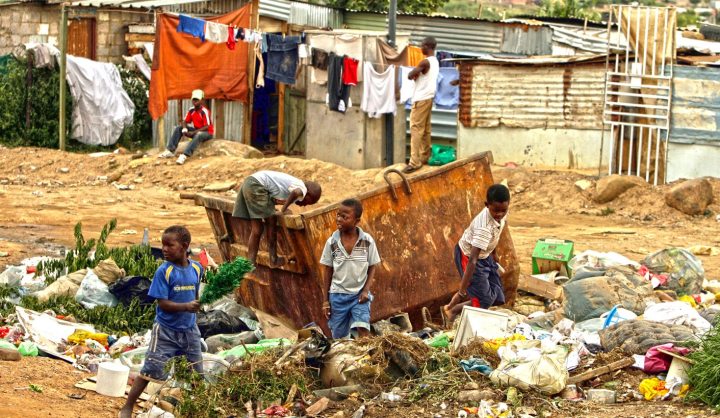South Africa
Op-Ed: Does philanthropy contribute to current inequity?

Most philanthropic entities claim to focus on systemic change through the application of strategic philanthropy. However, it is possible that the modern trend within the philanthropy sector for greater professionalism could mean taking the easy route for philanthropic decision-makers by choosing partners that have high levels of bureaucratic accountability rather than social movements, for example, that do not have the readily available impact assessments, monitoring systems or even clear leadership. By SHELAGH GASTROW.
I recently read an article which explored how philanthropy contributed to the existing status quo rather than effecting real change and began to think about whether this could be the case in South Africa.
In the South African civil society context there is a range of entities that are formally registered with either the SA Revenue Services or the Department of Social Development. These include international NGOs and aid agencies; large well-structured civil society organisations (CSOs) that focus on a range of issues including education, health, environment, the arts, social justice and human rights, and community-based organisations (CBOs) that are generally membership-based and function at the grass roots level, providing services within their own communities.
Some CSOs and CBOs receive government grants to supply these services. We also have social movements that have the capacity to organise but are not necessarily registered as formal entities. These can be large or small groups which are generally perceived as radical elements by the authorities. In some cases they have no formalised leadership structure and therefore engagement with the movement can be difficult for those in power. Social movements recently in the news include the #FeesMustFall student movement, Abahlali baseMjondolo (shackdwellers mainly in KwaZulu-Natal who demand their rights to live in the city) and the Landless People’s Movement based in Gauteng.
Where do donors put their money and does the bulk of donor money go to elitist groups, thereby marginalising community-based organisations in particular? Currently donor trends require a high level of professionalisation. Organisations need to be able to present their case for support through coherent proposals or complicated online applications; they need to ensure they have excellent paper trails in relation to funding and be able to report on how funds are used; they need to go through the hoops of theories of change and/or logic frameworks to ensure that they are clear indicators in relation to input, output, outcomes and impact.
On top of all this, we have King IV demanding corporate levels of accountability and governance in relation to every entity in South Africa. In South Africa these requirements are not feasible for the majority of organisations, even those that are formally registered with the Non-Profit Directorate in the Department of Social Development. So the reality is that funds go to international NGOs that have very sophisticated fundraising mechanisms and well developed networks and contacts in the donor world and, in addition, funds go to local civil society organisations that are professionalised and can meet all the donor requirements.
Most community organisations rely on charity rather than formalised donor grants, but have some capacity to access government support. The social movements are generally run by their own members in a voluntary capacity with some behind-the-scenes support from benevolent donors and potentially private foundations.
Do the more stringent donor requirements therefore maintain the status quo, providing resources to organisations emerging from the middle class, as valuable as they are, yet marginalising further those organisations that are created by the poor themselves? Attempts to solve this conundrum through re-granting foundations is one way of addressing the issue. In South Africa we have a number of “community foundations” that raise money from some of the larger donors and then re-grant to smaller entities, both urban and rural, to ensure that the funds reach the most marginalised communities.
According to the West Coast Community Foundation, these entities “are local organisations dedicated to strengthening local communities in the geographic areas in which they operate, in order to make a difference to the lives of local people, especially vulnerable people. Community foundations manage funds donated by individuals and organisations.”
There are a number of such organisations in South Africa, many doing more than just making small grants, but also participating in building the capacity of communities to sustain themselves. When unpacking who funds these foundations, it is interesting to note that a number of mainstream donors are investing in these foundations to ensure that their funds do reach grassroots organisations. Major donors do not have the systems to manage hundreds of small grants, and therefore community foundations play a critical role in ensuring that money reaches the smallest organisations, sometimes in the most remote areas.
The uThungulu Community Foundation in Richards Bay received its seed funding from major donors such as the Ford Foundation, the Charles Stewart Mott Foundation, BHP Billiton and Rio Tinto, through Richards Bay Minerals (RBM). The process was facilitated by the Zululand Chamber of Business and the now defunct Southern African Grantmakers Association. uThungulu works “with and through carefully identified community-based organisations”.
Whether this affects the charge that philanthropy maintains the status quo is to be seen, as is whether the growth of community foundations in South Africa is a way to assuage this problem. DM
Photo: Young boys play in a rubbish dump in Alexandra township outside Johannesburg, January 25,2009. REUTERS/Siphiwe Sibeko


















 Become an Insider
Become an Insider